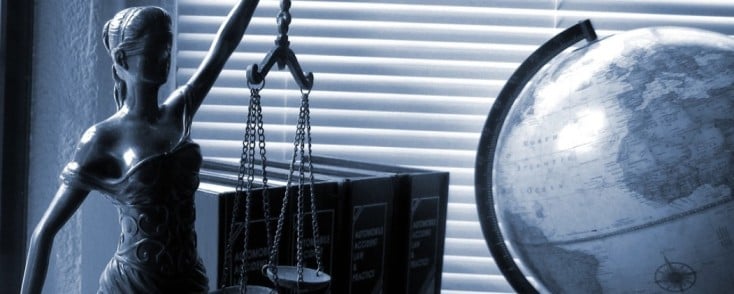This month:
- ICC and Afghanistan
- Two major proceedings in The Netherlands
- Vulnerable countries
- New arrest in Finland
ICC and Afghanistan
On 5 March 2020, the Appeals Chamber of the International Criminal Court (ICC) decided unanimously to authorise the prosecutor to start an investigation into alleged crimes in relation to the situation in Afghanistan. The Prosecutor can now investigate the crimes allegedly committed on the territory of Afghanistan since 1 May 2003. The investigating may also look into related crimes that were committed on the territory of other States Parties to the Rome Statute since 1 July 2002. With the later, reference is made to the CIA’s practices and secret prison scheme in various EU countries.
The decision has led to threats by the US against ICC staff and their families, which led to the 19 March 2020 statement of the ICC concerning these threats. Fact of the matter is that the United States will not accept the jurisdiction over its own citizens. It also stipulates that it will bring to justice its own citizens. This is in line with the principle of complementarity of the ICC -in short: the ICC only has jurisdiction over crimes when State Parties are not able or are unwilling to prosecute. Question then remains, why the United States are oppossed to this investigation. The mere fact that they are not a State Party is insufficient. The jurisdiction in this case derives from the fact that crimes have been committed on the soil of sovereign State Parties.
Proceedings in The Netherlands
On 9 March 2020 a trial started against 3 Russians and 1 Ukrainian suspected of unlawfully downing flight MH17 in 2014, resulting in the murder of 298 citizens.
On 25 March 2020 the Dutch District Court of The Hague ruled that the Dutch State acted wrongfully towards the children and the widows of men who were executed by the Dutch Military in the 1940’s on South-Sulawesi (a former Dutch East Indies colony). They were awarded compensation for material and immaterial damages. The decisions are in line with the court’s 2011 judgment in a comparable case.
Vulnerable countries
Which situations are most vulnerable for core international crimes being committed in an atmosphere of impunity. This month, extra consideration and concern should be given to the even more vulnerable situation of citizines, might they be confronted with the Corono-crisis.
- Afghanistan: armed conflict between government, taliban, ISIL-K
- Burkino Faso: ethnic/religious militia and self-defense groups, islamist groups targeting civilians
- Burundi: political atmosphere, tensions based on upcoming elections
- Cameroon: tensions between the government/Francophone population and the Anglophone population
- Central African Republic: breaches of the peace-agreement
- China: muslim minorities being detained in re-education centers
- Democratic Republic of Congo: violence in Ituri and North Kivu, ongoing violence between Hema and Lendu
- Libya: ongoing fighting around Tripoli and the western part of the country
- Mali: ethnic/religious militia and self defense groups, islamist groups targeting civilians
- Myanmar: the vulnerable position of the Rohingya group
- Syria: atmosphere of impunity in government held territories, vulnerable prison conditions and treatment of prisoners, the Idlib-campaign has ended, Turkey seeks to prevent further escalation and operations in the area which may lead to considerable crimes and refugee flows
- Venezuala: impunity for serious human rights violations committed by the Maduro regime
- Yemen: ongoing conflict, failure to protect non-combatants
New arrest in Finland
Early March, a former rebel of the Revolutionary United Front (RUF) of Sierra Leone was arrested in Tampere (Finland). He is suspected of war crimes and crimes against humanity committed in the period 1999-2003 in Liberia. The crimes include homicide, sexual violence and the recruitment and use of child soldiers. Victim centered organisations Civitas Maxima and the Global Justice and Research Project played an important role in bringing the case to justice.




